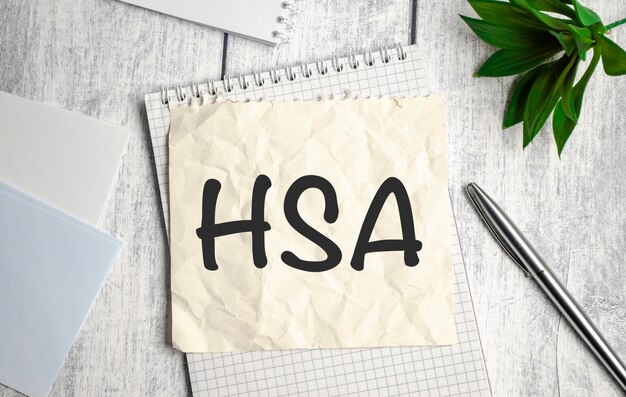Navigating Health Accounts: Can You Really Use FSA and HSA Simultaneously?
Most people know about Flexible Spending Accounts (FSAs) and Health Savings Accounts (HSAs) — two popular ways to manage healthcare expenses in a tax-advantaged way. Yet, one common question remains: can you have both an FSA and an HSA? Understanding these accounts individually and how they might—or might not—work together can help you make informed decisions about your healthcare funding strategies.
Understanding the Basics: FSA and HSA
What is an FSA?
Flexible Spending Accounts (FSAs) are pre-tax accounts designated for healthcare expenses. Provided by employers and deducting directly from your paycheck, they reduce taxable income while allowing you to pay for medical expenses tax-free. Some key features include:
- Annual Limits: The IRS sets an annual limit on contributions.
- Use-It-or-Lose-It: Funds usually must be spent within the plan year, or they are forfeited. However, an employer might provide a grace period or allow a small carryover to the following year.
- Eligible Expenses: FSAs can be used for various medical expenses such as copayments, deductibles, medications, and other out-of-pocket costs.
What is an HSA?
Health Savings Accounts (HSAs) are another way to set aside pre-tax money for medical expenses, but they require enrollment in a High Deductible Health Plan (HDHP). Here are some distinctions:
- Annual Contribution Limits: Higher than for FSAs, and determined by the IRS based on whether you have individual or family coverage.
- Roll-Over Benefits: Unused funds roll over annually, allowing you to build savings over time.
- Investing Options: HSA funds can be invested, potentially growing tax-free over the years.
- Eligibility: Strictly tied to HDHPs to encourage consumer-directed healthcare spending.
Can You Combine FSA and HSA Benefits?
The possibility of utilizing both FSAs and HSAs simultaneously often leads to confusion. The key is understanding the regulations and interactions between these accounts.
FSA and HSA: Direct Overlap
In most cases, you cannot actively contribute to both an HSA and a general-purpose FSA simultaneously if they cover the same expenses. However, there are strategic ways they can coexist:
- Limited Purpose FSA: Some employers offer a Limited Purpose FSA (LPFSA) that focuses only on specific expenses like dental and vision care. This type of FSA can complement an HSA because it doesn't interfere with the HSA's eligibility criteria.
Ensuring Compliance and Maximizing Benefits
If you want to optimize benefits using both accounts in the same tax year, mindful coordination is crucial:
- Check Plan Details: Always verify with your employer's benefits coordinator or financial advisor to ensure your plan structures are aligned and compliant.
- Plan Expense Strategies: Use the LPFSA for targeted areas, preserving your HSA funds for broader medical expenses or future retirement healthcare costs.
Related Subtopics: Benefits, Limitations, and Guidance
To navigate the nuanced landscape of FSAs and HSAs, understanding both benefits and limitations is key.
Benefits of Having Both Accounts
- Maximized Tax Advantages: Both accounts allow you to pay healthcare costs with pre-tax dollars.
- Increased Savings Potential: Using an LPFSA lets you reserve HSA funds for investment or significant medical expenses, enhancing your financial security.
- Strategic Planning for Expenses: Allocating expenses to the appropriate account streamlines spending, optimizing each account's benefits.
Limitations and Considerations
- Employer Decisions: The availability of an LPFSA depends on employer offerings.
- Account Management Complexity: Handling multiple accounts demands diligent record-keeping and planning.
Practical Tips for Managing Your Accounts
- Project Your Expenses: Forecast potential expenses for dental, vision, and comprehensive healthcare.
- Maximize Contribution Limits: Contribute optimally to take full advantage of tax savings.
- Use Technology: Leverage financial apps for tracking and optimizing healthcare expenses.
Key Takeaways: Visually Distinct Summary
Here are some practical tips and insights for navigating FSAs and HSAs:
🤔 Evaluate Eligibility: Assess if your HDHP and FSA align to allow contributions without conflicts.
💡 Consider LPFSA: Opt for a Limited Purpose FSA to complement HSA benefits and extend coverage for specific areas like vision and dental.
💰 Maximize Savings: Contribute strategically to both accounts, maximizing annual limits for tax savings.
📊 Plan and Track: Use tools and resources for planning medical expenses and keeping track of deductibles and potential savings.
🔍 Stay Informed: Regularly review policy changes and consult with HR or financial advisors to stay compliant.
Navigating Choices and Possibilities
Choosing between an FSA and an HSA doesn't have to be an either/or decision. By understanding how FsAs and HSAs function individually and together, especially with options like the LPFSA, you can create a personal strategy that maximizes tax benefits while managing healthcare expenses effectively.
Remember, navigating these options requires a good understanding of your financial and healthcare needs, along with a keen eye on changes in healthcare policy. Always connect with HR professionals or financial advisors to tailor your strategy to best fit your situation. By doing so, you can stay proactive, set financial goals, and take charge of your healthcare expenses smartly and efficiently.

Related Topics
- a Health Savings Account
- Are Cough Drops Hsa Eligible
- Are Diapers Fsa Eligible
- Are Diapers Hsa Eligible
- Are Electric Toothbrushes Hsa Eligible
- Are Fsa Contributions Tax Deductible
- Are Gym Memberships Hsa Eligible
- Are Health Savings Accounts Worth It
- Are Hsa Contributions Deductible
- Are Hsa Contributions Pre Tax
